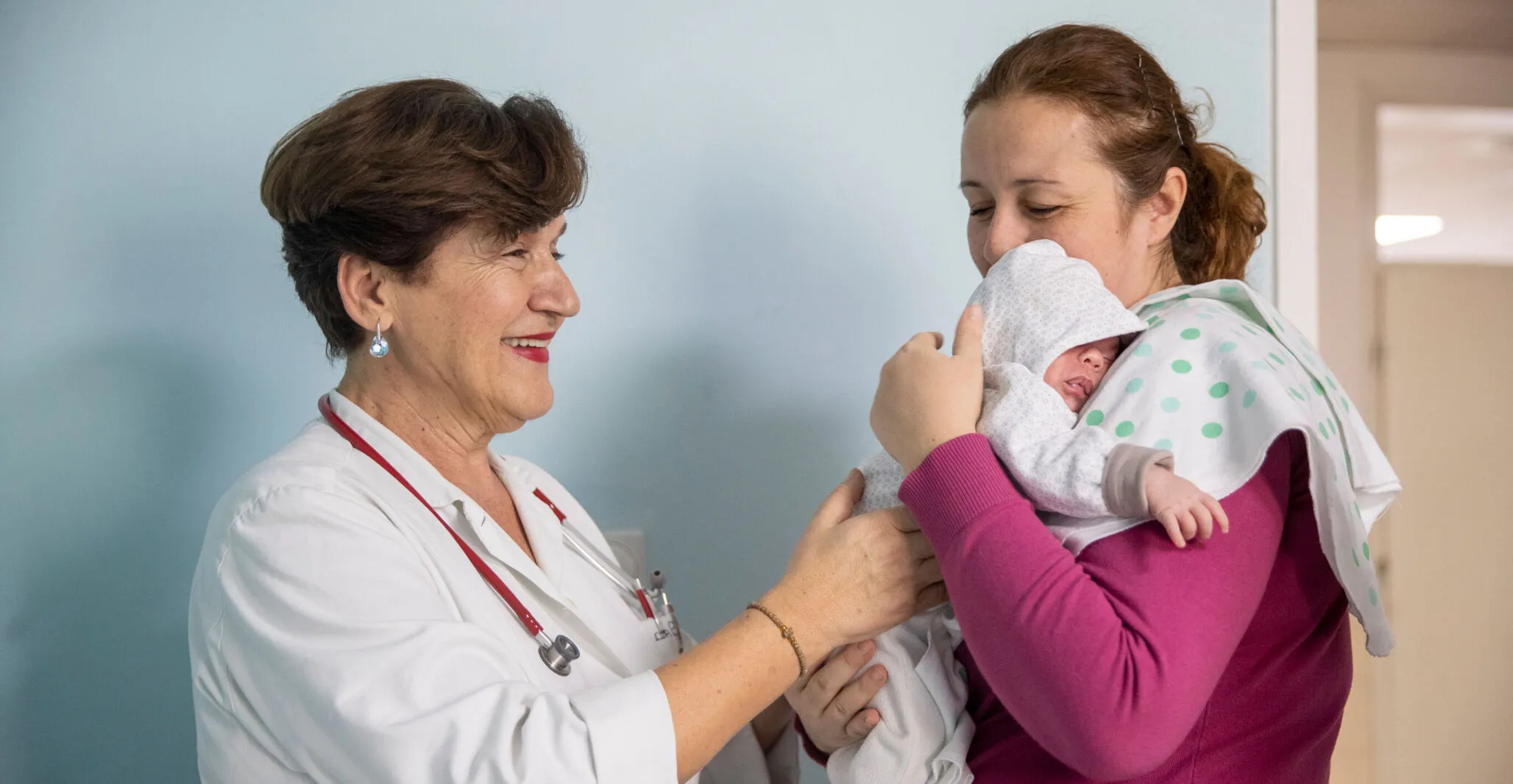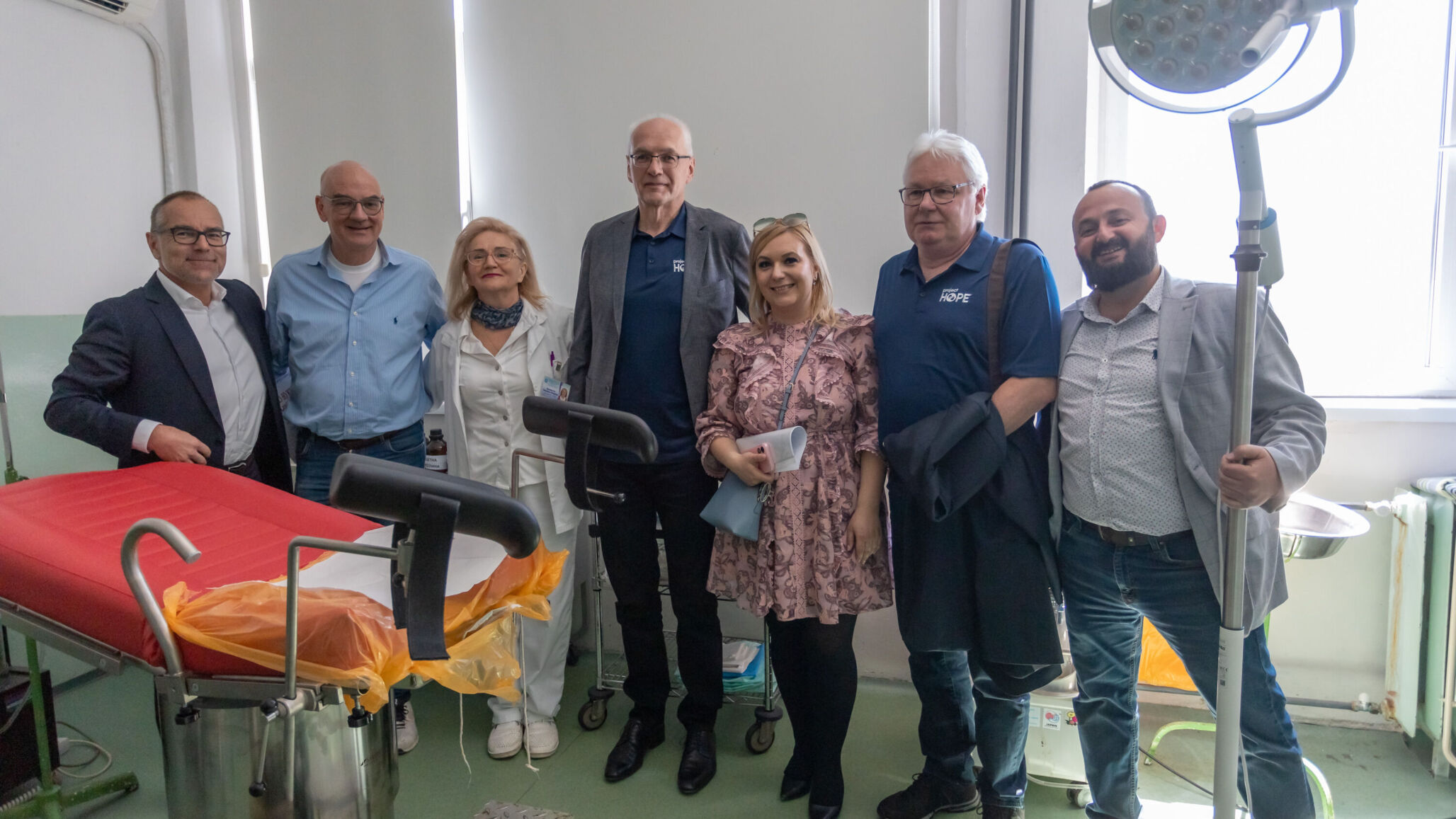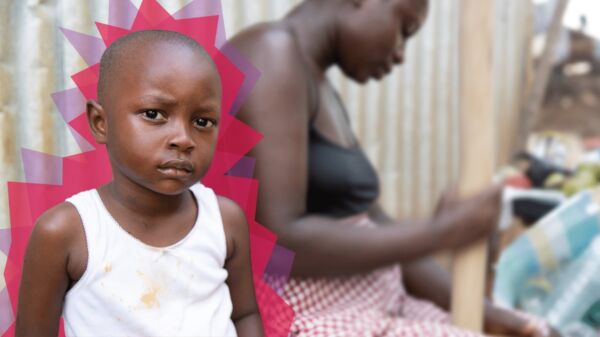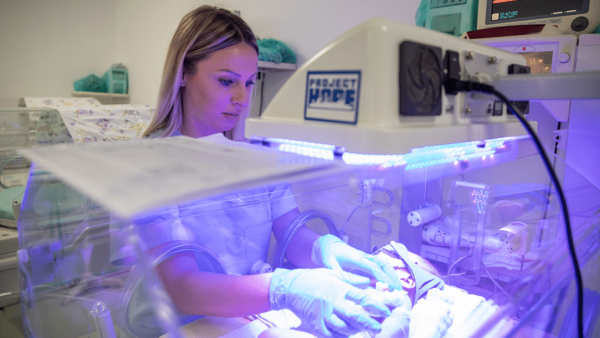

North Macedonia
Reducing neonatal mortality and delivering essential medicines and medical supplies for health care workers
The Context
North Macedonia struggles to meet global health standards due to limited economic resources. A shortage of health workers and overall lack of medicine and supplies undermines the health system and exacerbates health challenges. Equipment and supplies are often outdated and insufficient, medicines are either unavailable or too expensive, and many health workers leave the system to seek better working conditions.
The risk of noncommunicable diseases (NCDs) is on the rise, often exacerbated by unhealthy lifestyle choices related to smoking, hypertension, and diet. Worsening air pollution (another risk factor) is also a top national concern. Cardiovascular diseases are the leading cause of death in the country, responsible for around half of all premature deaths. Catastrophic health spending – predominantly due to out-of-pocket medicines – is problematic, particularly for lower income households.
Our Impact
Delivering Essential Medicines and Supplies
Project HOPE’s innovative Strategic Medical Re-Supply Program (SMRP) launched in 2007 to alleviate shortages of essential medicines. Since then, we’ve worked closely with the Ministry of Health and government health facilities to deliver $97 million worth of essential medicines and medical supplies throughout the country. This has proven critical in improving patient care and strengthening the health system. We also donate medical equipment through PeriMAC — a program launched in 2017 in collaboration with Project HOPE Germany and the Ministry of Health and implemented with the support of many local and international donors, embassies, and supporters.
Improving Newborn and Maternal Care
Project HOPE is focused on reducing perinatal mortality and improving neonatal and maternal health. Supplying hospitals and clinics with the latest medical equipment is an essential part of this work.
Since 2017, through the PeriMAC program, we have donated equipment and supplies to two hospitals in Skopje — the Special Hospital for OBGYN – Mother Teresa Skopje and the intensive care unit of the University Children’s Hospital — and two hospitals outside of the capital — the Clinical Hospital in Tetovo and General Hospital in Kumanovo. Donations include delivery beds, patient monitors, fetal monitors, radiant warmers, surgical instruments, and more. Since launching this program, we have seen a 50% reduction in neonatal mortality at the intensive care unit of the University Clinic for Children Diseases Skopje.
Training Health Workers
In partnership with the University Hospitals in Amsterdam and Bonn, we train health workers on the proper use of donated medical equipment and supplies. To reduce perinatal mortality and morbidity, we are building the capacity of health workers to better treat special pathologies and conditions of high-risk pregnancies and preterm and full-term newborns. Project HOPE’s partnership with Becton Dickinson and its Volunteer Service Trip signature program enabled us to train over 600 health care workers on crucial clinical skills for neonatal infants in 2023.
Our History in North Macedonia
Project HOPE’s work in North Macedonia began in 1992 with a biomedical engineering program at two regional hospitals in the country. Through the years, Project HOPE also implemented programs supporting refugees from the regional Balkan conflicts. In response to the COVID-19 pandemic in North Macedonia, Project HOPE distributed personal protective equipment (PPE) for frontline health workers, ramped up contact tracing, and delivered virtual training in partnership with Brown University to help doctors, nurses, and pharmacists better track and treat the virus. In partnership with New York Health & Hospitals and the South-eastern Europe Health Network, we also rolled out critically needed trainings for health care workers’ mental health and resilience. Today, our work in North Macedonia improves patient care by strengthening the management skills of key hospital and health professional staff, supports refugees from Afghanistan and Syria passing on the Balkans route, and builds innovative projects that incorporate new technologies in the health care system.




